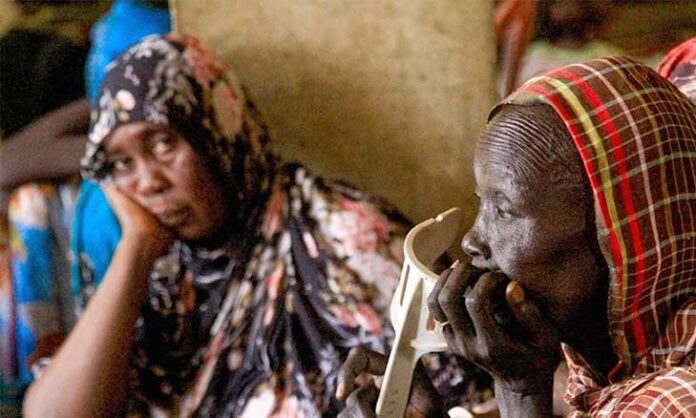Khartoum – Médecins Sans Frontières (Doctors Without Borders) has warned that women and girls in Sudan’s western Darfur region have been subjected to gang rape in broad daylight and in front of passersby by members of the Rapid Support Forces (RSF), and that they remain at constant risk of sexual violence.
The organization emphasized that sexual violence has become so widespread and terrifying that many now see it as an inescapable reality. MSF presented testimonies from survivors and eyewitnesses describing large-scale rape in the region.
Claire San Filippo, MSF’s emergency coordinator, stated: “These attacks are heinous and cruel, often involving multiple perpetrators.” She added, “Women and girls do not feel safe anywhere; they are attacked in their homes, while fleeing violence, collecting food, or working in the fields. They tell us they feel trapped”.
According to MSF’s report, between January 2024 and March 2025, the organization provided care to 659 survivors of sexual violence in South Darfur. Of these, 86% had been raped, and 94% were women and girls. The report also noted that 56% of survivors said their attackers were not civilians, 31% were under 18 years old, 7% were under 10, and 2.5% were under . Additionally, 55% reported experiencing further physical violence during the assault, and 34% were attacked while working in fields or traveling.
One 17-year-old survivor recounted: “They beat and raped us there on the road, in public. There were nine RSF men; seven of them raped me. I wished I could lose my memory after that”.
Another woman told the MSF team in West Darfur: “Some people came at night to rape women and steal everything. Men hid in bathrooms or rooms they could lock. The women did not hide, because what we faced was ‘just’ rape, but the men would be killed”.
In another case, a woman was targeted simply for having a first aid certificate, being accused of supporting the army, and was subsequently raped by RSF members.
MSF highlighted the immense challenges survivors face in accessing care, including a lack of services, high transportation costs, and fear of stigma. The organization called for an immediate end to these brutal attacks, protection for civilians, accountability for perpetrators, and expansion of medical and psychological support services, especially in affected areas like Darfur and eastern Chad.
Statistics from Sudan’s Unit for Combating Violence Against Women and Children recorded 1,138 cases of rape and sexual violence, including 193 cases involving children and 134 cases of forced disappearance and sexual slavery by RSF forces. These figures do not include South Kordofan and parts of Darfur due to lack of communications infrastructure.
Salima Ishaq, head of the unit, stated at the Oslo Freedom Forum that the war is not merely a power struggle between generals, but a project to dismantle Sudan, alter its demographics, erase its history, and forcibly displace its people. She stressed that the RSF uses rape as a weapon of war because it is effective, cheap, silent, and leaves devastating impacts for generations, often going unseen by cameras or media.
Ishaq shared stories of women who thought they were safe from sexual violence, only to be subjected to gang rape and left powerless. She recounted the story of a 58-year-old woman who refused psychological or social support, saying her rape had stripped her of her dignity as a grandmother and left her feeling she no longer belonged in the world.
She concluded with an appeal: “Stop the silence and complicity with this silence. Call things by their names.”


